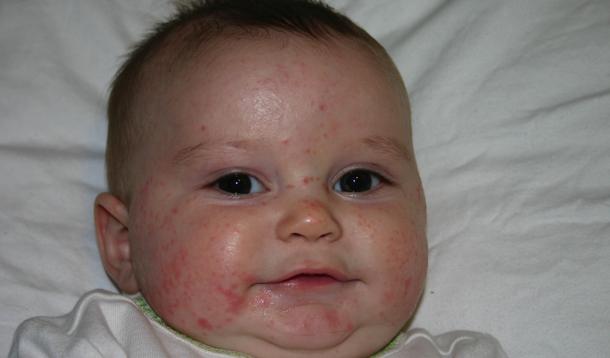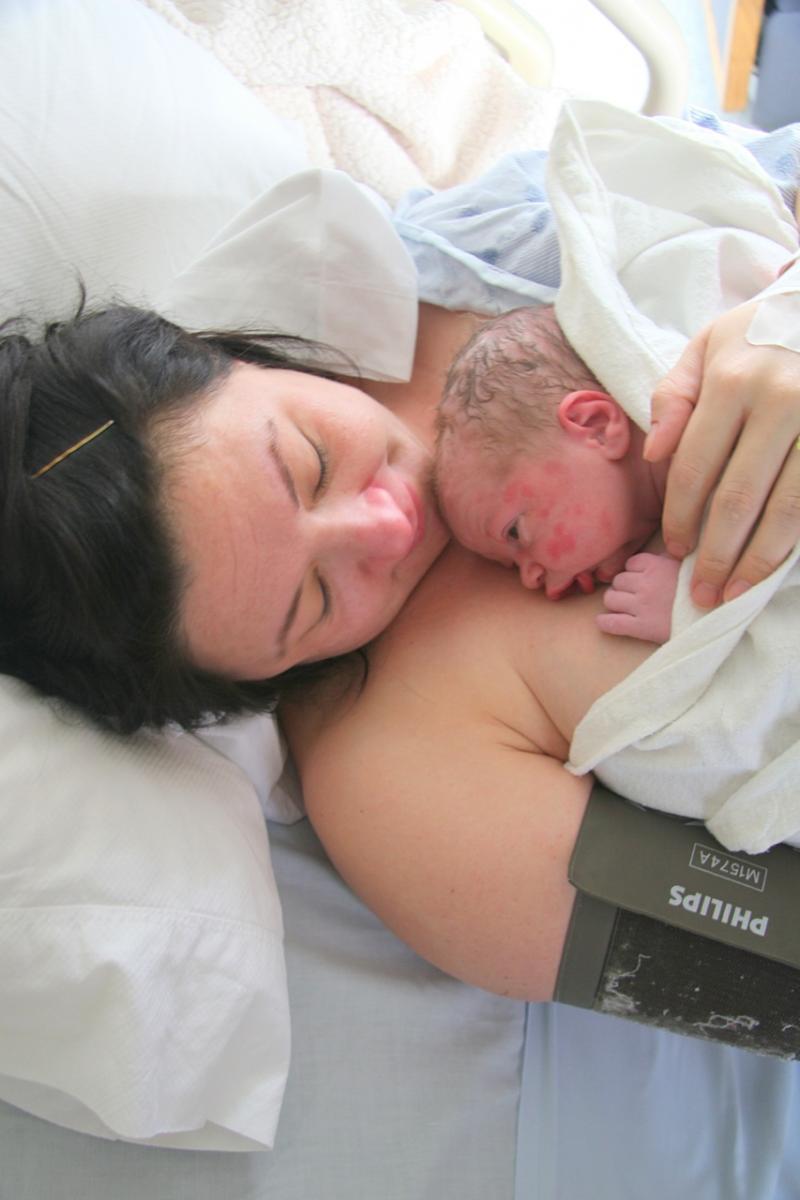
My son was born with a terrible rash. So bad, in fact, that the insensitive nurses referred to him as, "The baby with the face." Of course, at birth we had no idea what we were in for, and I didn't realize that food was to blame.

At one month old, the rash wasn't getting any better and I started to suspect food allergies, but when we inquired with various doctors, they said that was impossible. He just had eczema, period. We were sent to a dermatologist who, quite literally, laughed when I suggested it may be food-related, as he wrote a prescription for cortisone creams.

The rashes would get so bad that he'd claw at his tender skin, leading to infections and worse rashes. It was heartbreaking to know he was so uncomfortable. I finally asked my naturopathic doctor for her suggestions, and mentioned that I felt like an elimination diet was a good idea. She totally agreed, and also suggested we start boosting Mason's gut health with some probiotics.

We tried every cream there was to try. Nothing made much of a difference, because the root of Mason's problem wasn't on the surface of his skin, it was in his gut, inside his struggling immune system, or buried somewhere else inside him.

When Mason had chocolate smeared on his face, this was his reaction. He hadn't even eaten it. How could this not be related to the food somehow? 
When we started to see dramatic improvements in his skin (with the use of probiotics and an elimination diet in place), I knew it was food related. After struggling on our own for months, we finally saw an allergist when he was nine months of age. Food introduction had been rocky for us, since I felt that Mason was allergic to so many things—he ate very limited "solids" and was almost exclusively breastfed for his first year of life. He was 26 pounds by the time he was six months old, though, so he was (obviously) not suffering from a growth perspective.

The allergist tested him for common things, like dairy, soy, and eggs, and Mason was positive for all. He was allergic to many more things, too. And honestly, I was relieved and felt vindicated. The past nine months had been a battle for us, begging doctors to listen, and to believe that our baby was allergic from birth.
When I explained that we'd been using probiotics to boost his gut health, the allergist brushed it off, totally discounting the fact that it may have been a major key in balancing Mason's body. She was absolutely sure that the allergic responses were immune-based, but not related to gut health. I knew that was wrong, I had seen the results myself.
I wonder what she thinks of the newest study that says the common gut bacteria, "Clostridia," has been shown to reduce allergens and prevent them from entering the bloodstream in mice? A team at the University of Chicago tested mice born germ-free and those treated with antibiotics and then exposed them to peanut allergens. The results were strong responses in both sets of mice. They then introduced the Clostridia bacteria and effectively managed to reverse the sensitization in the mice. How totally incredible is that?
The key, however, is this particular kind of bacteria. Catherine Nagler, food allergy professor and the study's senior author, stated, "The fact that we could show so clearly that this particular bacterial population regulated the detection of the allergen in the blood stream was a big surprise," nothing that now, "we can use the information...to develop novel probiotic therapies, taking these bacteria and developing them as a drug."
The potential of this Clostridia drug is immense. Used together with desensitization protocols it could change the lives of food allergy sufferers immensely.
I find it fascinating that our naturopathic doctor saw the link between food allergies and gut bacteria years ago when our other doctors discounted it entirely. I'm really glad there are so many researchers doing studies, so that things like this can come to light. I'm relieved that not all professionals agree, frankly, because that disagreement leads to new studies, new findings.
And I'm very happy that when I had a hunch about why my baby was suffering, I literally went with my gut (and his).
To read more about some fantastic new scientific discoveries relating to allergies, read this piece about what triggers Celiac Disease and find out how scientists are learning to desensitize peanut allergies!